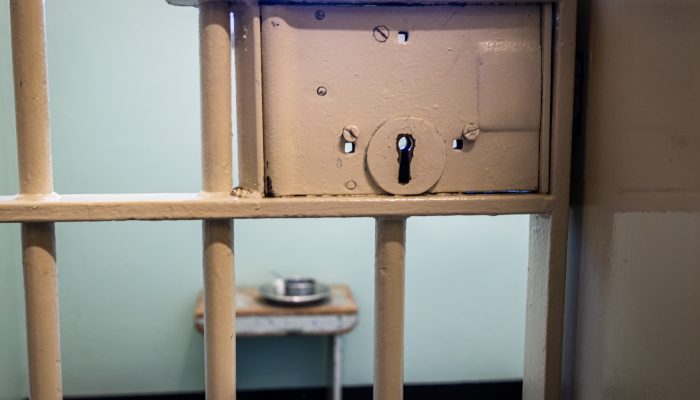Iowa is tied for seventh among states with the highest disparities in Black incarceration rates, according to new analysis from the nonprofit Prison Policy Initiative. Data released on September 27 show Black Iowans are about nine times more likely than whites to be in prison or jail, and Native Americans are about thirteen times more likely than whites to be incarcerated in Iowa.
Betty Andrews, president of the Iowa-Nebraska NAACP, said in a statement that the findings “underscore the need for systemic reform.” She called on Iowa to “take action in every facet of the justice process.”
Approximately 17,000 Iowans are incarcerated, the Prison Policy Initiative’s Iowa fact sheet shows, roughly half in state prisons and most of the rest in county jails or federal prisons. As in many states, the per capita incarceration rate has grown over the past 40 years. But Iowa has long been among the worst for racial disparities in the criminal justice system, across various metrics.
The latest research includes this graphic showing ratios of Black and white incarceration rates in all 50 states. Iowa is part of a cluster of states, including neighboring Nebraska and Minnesota, where Blacks are about nine times more likely than whites to be in jail or prison.
Note that across the Midwest, racial disparities in the incarceration rate are higher than the national average (six times higher incarceration rate for Blacks than for whites). Although the percentage of the population in jails or prisons is generally higher across the South than in the Midwest, the racial disparities in the incarceration rate tend to be less pronounced in southern states.
Drilling into the Iowa data, the Prison Policy Initiative notes that while about 84 percent of Iowans are white, only 64 percent of people incarcerated are white. In contrast, Blacks comprise about 4 percent of Iowa’s population but 25 percent of the incarcerated population. The disparity is also extremely high for American Indians or Alaska Natives, who make up only 0.2 percent of Iowa’s population but about 2 percent of those in prison or jail.
You can read the full article at Bleeding Heartland.

